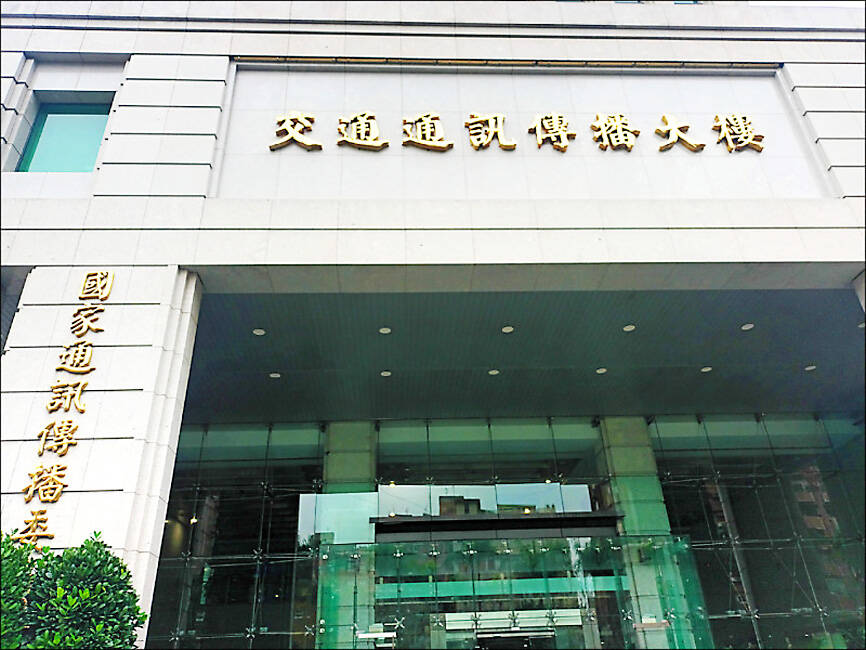The National Communications Commission (NCC) is to set up a special task force to monitor the situation when two telecom mergers take effect next month, it said yesterday.
Taiwan Star is to merge with Taiwan Mobile on Friday next week, while Asia Pacific Telecom (APT) is to merge with Far EasTone Telecommunications (FET) on Dec. 15. Taiwan Star and APT, which have 2.48 million and 1.99 million subscribers respectively, would cease to exist after the mergers.
Taiwan Star subscribers would not need to change their SIM cards for now unless they want to subscribe to other value-added services offered by Taiwan Mobile, NCC Vice Chairman Wong Po-tsung (翁柏宗) said.

Photo: Taipei Times file
APT subscribers would have to change their SIM cards after the merger, as the telecom uses the core network built by Nokia and FET uses Ericsson’s, Wong said, adding that FET should notify APT subscribers of the need to change their SIM cards.
“The synergy produced through telecom mergers should help enhance the quality of telecom services available to customers,” Wong said. “We hope that subscribers of the two new telecom companies would notice significant differences in terms of Internet speed and telecom service coverage before the end of January, otherwise [the telecoms] will be at the receiving end of subscribers’ fury.”
The task force would monitor whether Taiwan Mobile and FET offer reasonable monthly plans and follow their own time lines for changing subscribers’ SIM cards, or whether the mergers lead to any telecom service disruptions, Wong said.
Chunghwa Telecom, Taiwan Mobile and FET were in 2018 fined by the NCC for the chaos that broke out at their retail stores after they collectively offered a telecom service plan for NT$499 per month. The commission received numerous complaints about people having to wait hours to apply for the service plan.
Asked whether the commission is concerned about further chaos when subscribers collect new SIM cards at the telecoms’ stores, Wong said that the scenario is unlikely to happen.
“Given what happened in 2018, the telecoms should know by now that they need to offer subscribers multiple ways to change their SIM cards, instead of only allowing them to do so at retail stores. They need to find ways for people who have trouble leaving the house, live in remote areas or simply do not have time to change SIM cards,” Wong said.

Taiwanese can file complaints with the Tourism Administration to report travel agencies if their activities caused termination of a person’s citizenship, Mainland Affairs Council Minister Chiu Chui-cheng (邱垂正) said yesterday, after a podcaster highlighted a case in which a person’s citizenship was canceled for receiving a single-use Chinese passport to enter Russia. The council is aware of incidents in which people who signed up through Chinese travel agencies for tours of Russia were told they could obtain Russian visas and fast-track border clearance, Chiu told reporters on the sidelines of an event in Taipei. However, the travel agencies actually applied

Japanese footwear brand Onitsuka Tiger today issued a public apology and said it has suspended an employee amid allegations that the staff member discriminated against a Vietnamese customer at its Taipei 101 store. Posting on the social media platform Threads yesterday, a user said that an employee at the store said that “those shoes are very expensive” when her friend, who is a migrant worker from Vietnam, asked for assistance. The employee then ignored her until she asked again, to which she replied: "We don't have a size 37." The post had amassed nearly 26,000 likes and 916 comments as of this

New measures aimed at making Taiwan more attractive to foreign professionals came into effect this month, the National Development Council said yesterday. Among the changes, international students at Taiwanese universities would be able to work in Taiwan without a work permit in the two years after they graduate, explainer materials provided by the council said. In addition, foreign nationals who graduated from one of the world’s top 200 universities within the past five years can also apply for a two-year open work permit. Previously, those graduates would have needed to apply for a work permit using point-based criteria or have a Taiwanese company

The Shilin District Prosecutors’ Office yesterday indicted two Taiwanese and issued a wanted notice for Pete Liu (劉作虎), founder of Shenzhen-based smartphone manufacturer OnePlus Technology Co (萬普拉斯科技), for allegedly contravening the Act Governing Relations Between the People of the Taiwan Area and the Mainland Area (臺灣地區與大陸地區人民關係條例) by poaching 70 engineers in Taiwan. Liu allegedly traveled to Taiwan at the end of 2014 and met with a Taiwanese man surnamed Lin (林) to discuss establishing a mobile software research and development (R&D) team in Taiwan, prosecutors said. Without approval from the government, Lin, following Liu’s instructions, recruited more than 70 software